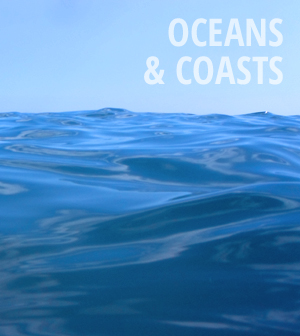Study predicts more intense ocean upwelling by 2100; impacts uncertain

A recent study found that by the end of the 21st century, ocean upwelling will start earlier and end later and get more intense at high latitudes.
The study, conducted by researchers from Northeastern University and Oregon State University, linked 22 different climate models from around the globe to measure the effects of climate change on coastal upwelling.
According to the National Science Foundation, Daiwei Wang, who led the research, predicts that the duration of upwelling may last up to two months longer. This may lead to an abundance in marine life, enhancing the global fishing industry.
However, too many nutrients can lead to a dead zone where life cannot survive, one of the major adverse effects of this predicted increase.
“Marine species are distributed across the globe in different ways based in part on the ocean climate at different parts of the globe,” Ganguly told NFS. “If that variability is reduced, that may have an adverse impact on biodiversity.”
According to a press release by Oregon State University, the researchers are hopeful that by better understanding these changes they can help fisheries around the globe manage their productivity.





0 comments